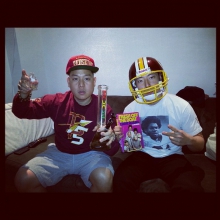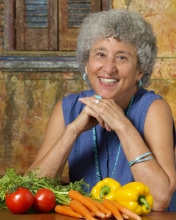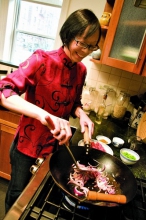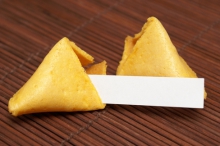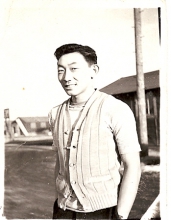Nina F. Ichikawa writes on food, agriculture and Asian American issues. She graduated U.C. Berkeley and Meiji Gakuin University in food policy, and her education also includes working as a restaurant dishwasher, making corsages at her family's 107-year-old flower shop and helping to establish the nation's first high school Asian American Studies program. She was a 2011-2013 Food and Community Fellow with the Institute for Agriculture and Trade Policy in Minneapolis, Minnesota. Twitters: @ninaeats.
Nina F. Ichikawa
Books: Starchy Fried Goodness and Other Vices
Fresh Off the Boat is a funny romp through chef and writer Eddie Huang's adventures
with sports, chicks, sneaker, guns, weed and the like.
Rice is Nice: Marion Nestle on the Science of Calories
Despite an endless stream of nutrition information, we seem more confused than ever about what to eat to stay fit and feel good. As for myself, a rice-less future is not one I want to participate in!
A Roadmap to Kimchi America
A visual history of offbeat attempts to bring kimchi to Main Street.
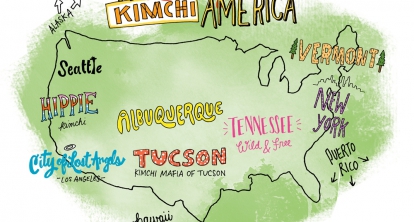
Kimchi Chic
Romancing the Wok
Fortune Cookie USA Photo Contest
Upload your most creative fortune cookie photos with the hashtag
#FortuneCookieUSA to Twitter or Flickr over the holiday season, and your
works of art may be published in Hyphen magazine's 10th Anniversary
Issue.
Double Trouble at Singleton's
Singleton’s
Mini Mart is a New Orleans lunch counter owned by the Nguyen family. Their work ethic and
memorable seafood po’boys inspired a New Orleans rap group called Double
Trouble to film their first video in Singleton’s, aptly titled “Watch Me Work.”
Sea Change
Gulf Coast Vietnamese Americans look to the future after the BP oil spill

Writer Nina Kahori Fallenbaum
Photographer Lisa Cates
Some say that Asian America began in Louisiana. In the late 1700s,
Filipino sailors escaped Spanish galleons and started shrimping the
hot, humid Gulf Coast, where the weather reminded them of Southeast
Asia and the water teemed with oysters, lobsters, scallops,
crab, crayfish and shrimp. After the Vietnam War, new waves of
Vietnamese and Cambodian immigrants settled in the area, indelibly
shifting the region’s mix of food, culture and history.
Mississippi Bok Choy
Telling the stories of Chinese American groceries in the South

Telling the stories of Chinese American groceries in the South.
APA Heritage Month Profiles: Hiroshi Kashiwagi, Poet, Playwright, Actor
Hyphen profiles writer/actor Hiroshi Kashiwagi as part of our continuing celebration of APA Heritage Month.
Back to the Future of Farming
Financial and cultural survival on three Asian American family farms.
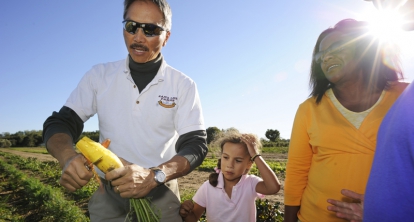
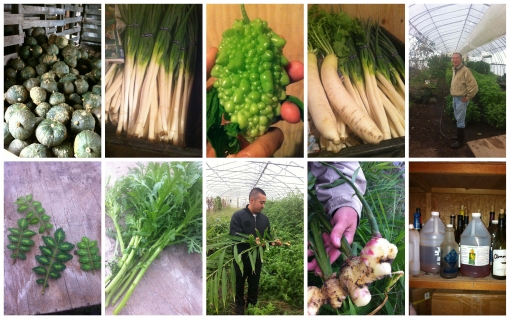
Kaye Kozuki is passionate about peaches. She’s a peach partisan. “My favorites are the low-acid nectarines,” she says. “Most stores don’t write down the variety, or let you know what type of fruit you’re eating, but we do. It matters.”
Labor of Love
The implications of food go far beyond nourishment.

Bonnie Kwon is prepared to cook and defend. In 2009, she co-founded the District of Columbia branch of the Restaurant Opportunities Center (ROC), a national organization that advocates for better conditions for restaurant workers. She’s also a labor organizer, a lawyer and a host of legendary home-cooked Sunday dinners. She recently spoke with Hyphen about the facts behind the food.
How did you become interested in restaurant organizing?
Dig In to Our New Food Section
Food is a real link to Asian American heritage, so we should be the ones to craft the storyline about how Asian food became hybridized in the United States.
Bringing Home the Farm
Kitchen gardening is all the rage, but Asian Americans have been doing it for generations.
THERE IS A SCENE I'll never forget in Spencer Nakasako's 1998 documentary Kelly Loves Tony. A Mien mother cooks an inky-black brew of homegrown herb soup for her daughter to bathe in after giving birth. Charming scene in the mountains of Laos? Nope it's East Oakland, CA, and she grew the wild potion alongside a concrete driveway next to a chain-link fence. It is here that Kelly's mother and other Southeast Asian families have turned parts of the "Murder Dubs" into arable land using ancient know-how and, sometimes, seeds smuggled through war zones and refugee camps.

